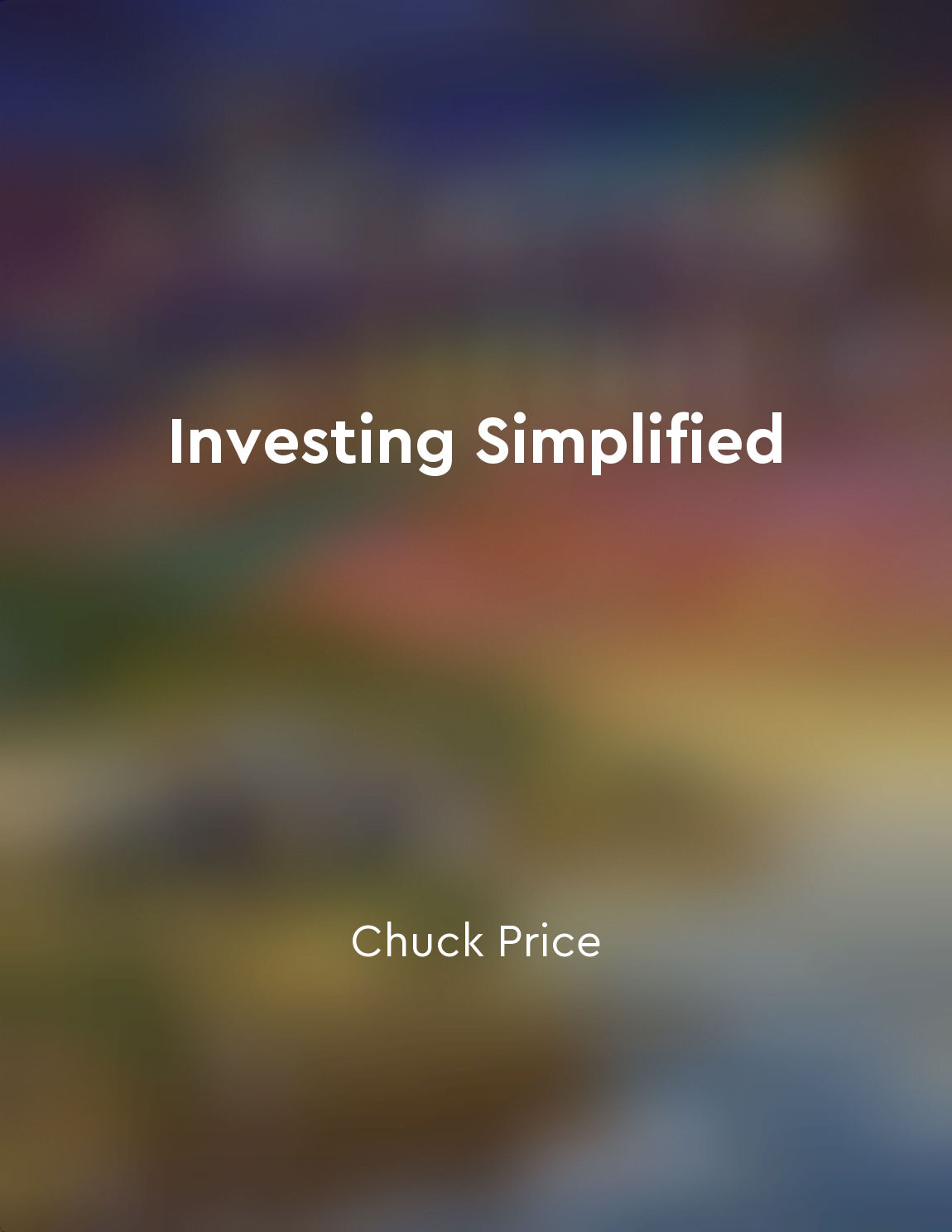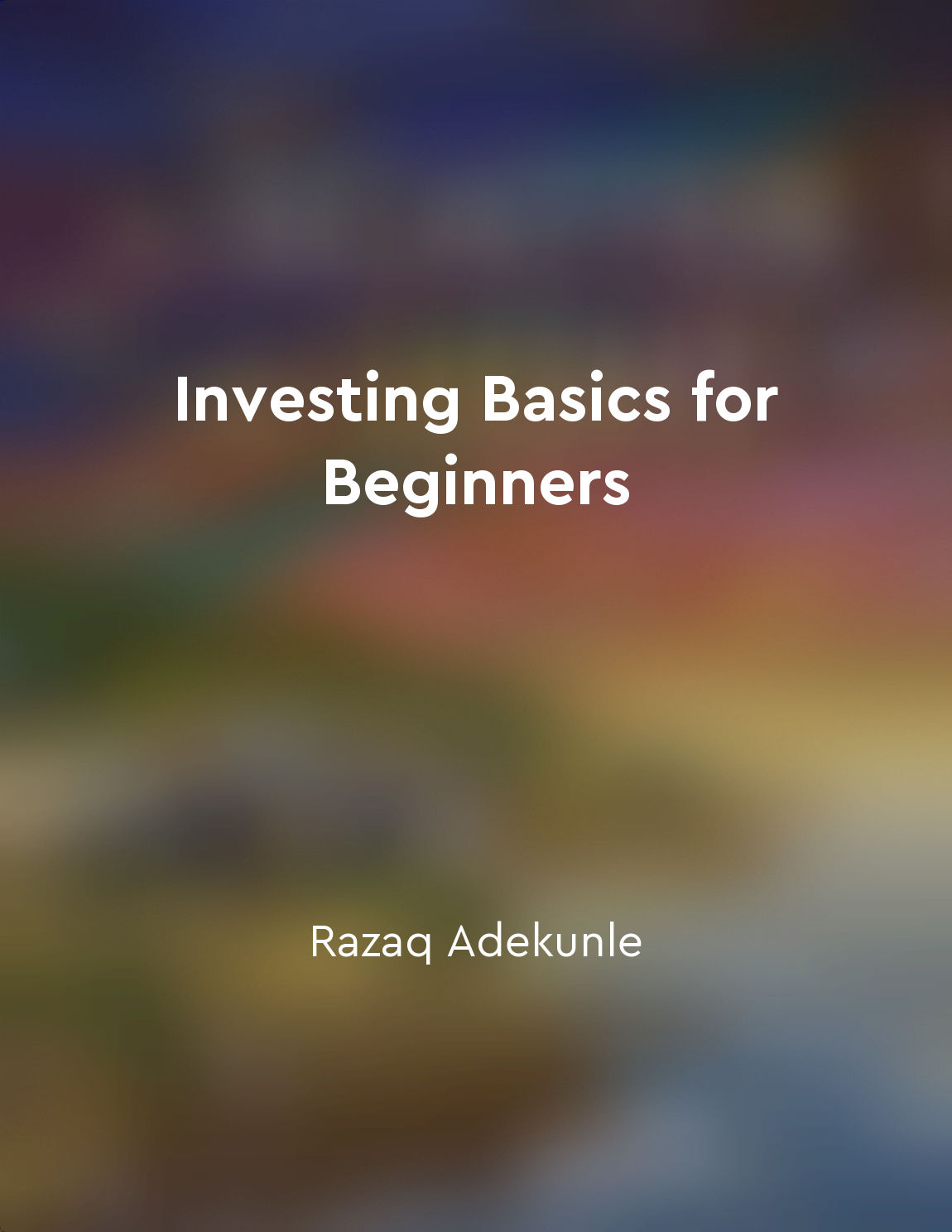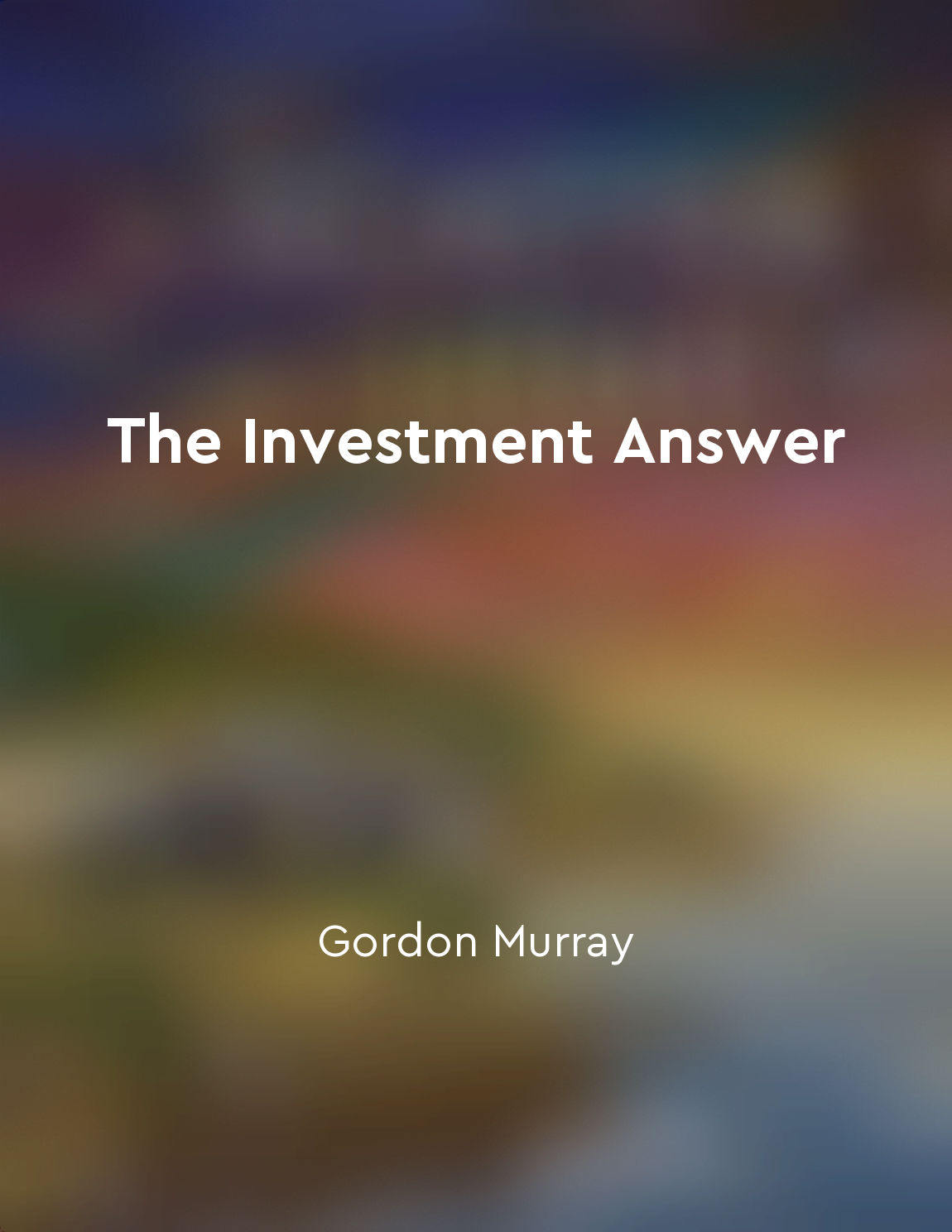Active management rarely beats the market from "summary" of Common Sense on Mutual Funds by John C. Bogle
The idea that active management rarely beats the market is a critical concept for investors to understand. Many investors are drawn to actively managed funds by the promise of outperforming the market and achieving higher returns. However, the reality is that the majority of actively managed funds fail to beat their respective benchmarks over the long term. This phenomenon can be attributed to a number of factors. One key reason is the higher fees associated with actively managed funds. These fees can eat into investors' returns and make it even more challenging for fund managers to outperform the market consistently. Additionally, the constant buying and selling of securities by active managers can result in higher trading costs, further eroding returns. Another factor to consider is the difficulty of consistently predicting which stocks will outperform the market. While some active managers may have periods of success, research has shown that this success is often due to luck rather than skill. Over the long term, the odds of consistently beating the market through active management are slim. In contrast, passive investing, which seeks to match the performance of a specific market index, has gained popularity in recent years. Passive funds typically have lower fees and turnover rates compared to actively managed funds, making them a cost-effective and efficient way to gain exposure to the market.- Investors can make more informed decisions about their investment strategy. While there may be a place for active management in certain circumstances, it is essential for investors to be aware of the challenges and risks associated with this approach. Ultimately, the data suggests that for many investors, a passive investing strategy may offer a more reliable path to achieving their long-term financial goals.
Similar Posts
Keep it simple
Simplicity is the cornerstone of successful investing. When it comes to managing your money, keeping things straightforward and...
Build a portfolio that reflects your personal financial goals and risk tolerance
When it comes to investing, it is essential to align your portfolio with your individual financial objectives and comfort level...
Use leverage cautiously
Leverage is a powerful tool that can magnify gains when used correctly, but it can also amplify losses when used recklessly. It...

Seek out mentorship from successful investors
One of the best ways to accelerate your learning curve in investing is to seek out mentorship from successful investors. By lea...
Monitor your investments regularly
The key to successful investing is to keep an eye on your investments. You can't just buy a few stocks or mutual funds and forg...

Give back to your community through charitable contributions
Giving back to your community through charitable contributions is a crucial aspect of achieving financial success and fulfillme...

Investing is more about behavior than numbers
Investing is a unique domain where numbers and calculations take precedence. Many people believe that success in investing is a...

Create a diversified portfolio to spread risk
One of the key principles of investing is to spread risk by creating a diversified portfolio. This means not putting all your e...

Education is key to successful investing
Understanding the intricacies of investing can seem daunting at first. However, education can be the key to unlocking successfu...
Capital investments must align with natural order
The fundamental principle that governs successful capital investment is the need for alignment with the natural order. This ali...

